Is your supply chain struggling to keep up with demand? Professional freight services can revolutionize your logistics operations. This article explores how specialized cargo transport, including truckload shipping and pallet services, can enhance your supply chain efficiency. We’ll discuss strategies for selecting the right freight service provider, leveraging LTL options for cost savings, and the importance of freight insurance. By the end, you’ll understand how to maximize your supply chain performance and drive business success through optimized freight transport.
Key Takeaways
- Professional freight services optimize supply chains through efficient transportation and logistics management
- LTL shipping offers cost-effective solutions for smaller loads, improving flexibility and reducing costs
- Advanced tracking systems enhance visibility and enable proactive management of shipments
- Collaboration with freight partners and implementing advanced technologies leads to improved supply chain performance
- Regular performance monitoring and continuous improvement initiatives are crucial for maximizing logistics efficiency
Understanding Professional Freight Services
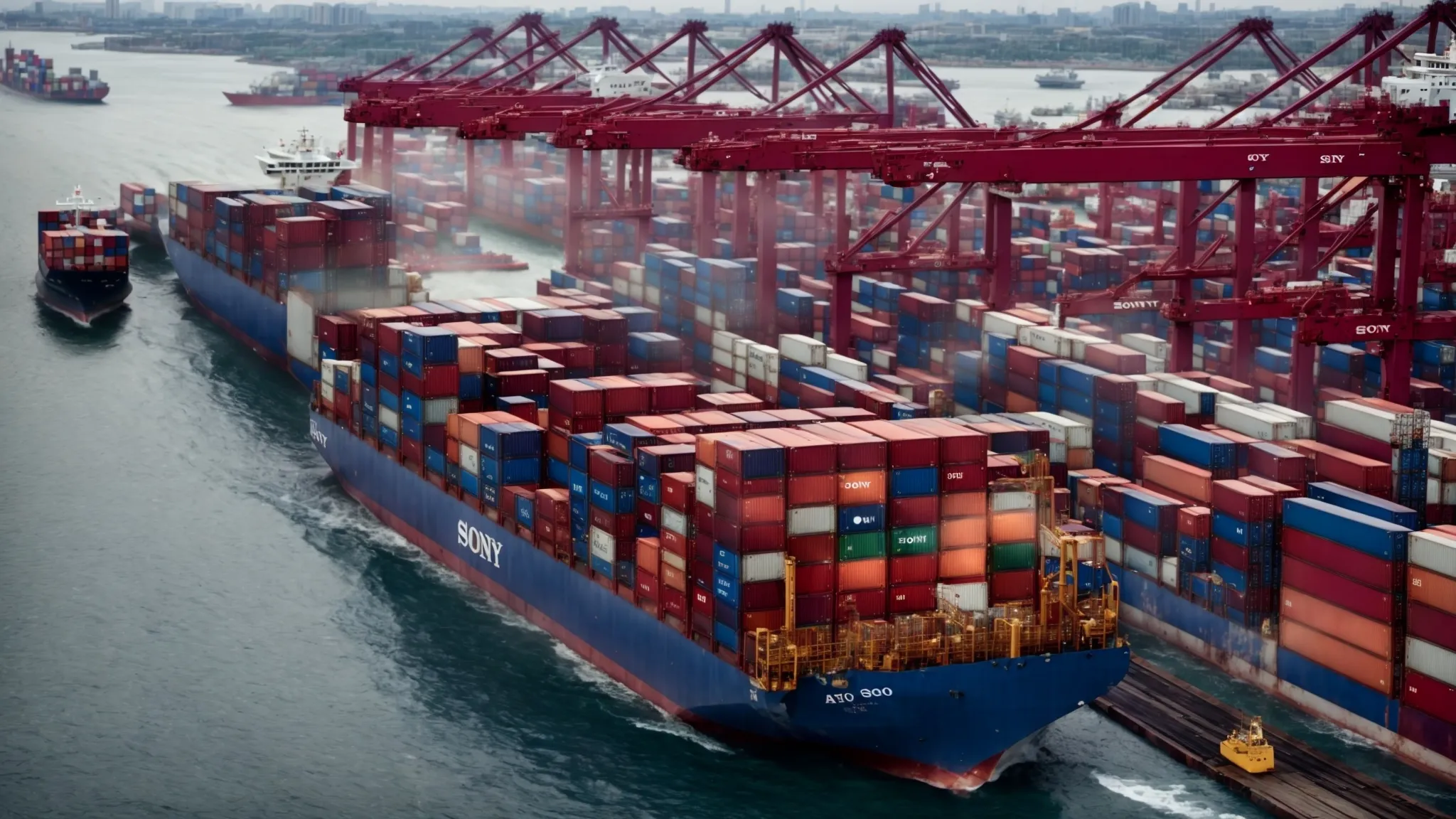
Professional freight services play a crucial role in optimizing supply chains. This section explores the definition and importance of Alkeba Logistics, various types available, and their evolution in modern logistics. From road transport to containerization, understanding our services helps businesses streamline operations, improve efficiency, and manage warehousing effectively. The changing landscape of freight services impacts how companies handle their transportation and storage needs.
Defining Freight Services and Their Role in Supply Chains
Alkeba Logistics Freight services form the backbone of efficient supply chains, encompassing the transportation of goods from origin to destination. These services manage the movement of bulk cargo, ensuring products reach their intended markets while navigating customs regulations and optimizing shipping density. Professional freight providers offer expertise in handling various types of cargo, from raw materials to finished products, across different modes of transport.
In modern supply chains, freight services play a crucial role in reducing costs, improving delivery times, and enhancing overall operational efficiency. They handle complex logistics tasks, including: Alkeba Logistics our services, our Instagram, and our Facebook
- Cargo consolidation and deconsolidation
- Route optimization
- Customs clearance
- Inventory management
- Real-time shipment tracking
By leveraging these services, businesses can focus on their core competencies while ensuring smooth product flow throughout the supply chain.
Various Types of Freight Services Explained
Professional freight services encompass a variety of transport modes to meet diverse shipping needs. Intermodal container transport combines multiple methods, such as rail transport and trucking, to optimize logistics efficiency. Freight forwarders play a crucial role in coordinating these services, managing documentation like bills of lading, and ensuring seamless cargo movement across different carriers and modes.
Specialized freight services cater to specific industry requirements. Temperature-controlled logistics ensure the safe transport of perishable goods, while oversized cargo handling addresses unique challenges in moving large equipment. Air freight offers rapid delivery for time-sensitive shipments, and ocean freight provides cost-effective solutions for bulk cargo transportation across long distances. These diverse options allow businesses to tailor their freight strategies to specific needs and constraints.
The Evolution of Freight Services in Today’s Logistics
Freight services have undergone significant transformation in recent years, driven by technological advancements and changing market demands. Rail freight transport has experienced a resurgence, particularly in North America, as companies seek more sustainable and cost-effective shipping solutions. Technology has revolutionized freight management, with digital platforms like Freightquote enabling shippers to compare rates and book services seamlessly.
The evolution of freight services has led to increased efficiency and transparency in supply chains. Real-time tracking, predictive analytics, and automated documentation processes have become standard features, enhancing visibility and reducing transit times. These advancements have particularly benefited cross-border shipping in North America, streamlining customs procedures and facilitating smoother international trade:
| Evolution Factor | Impact on Freight Services |
|---|---|
| Technology | Real-time tracking, automated booking |
| Rail Freight | Sustainable, cost-effective long-haul transport |
| Digital Platforms | Easy rate comparison, seamless booking |
| Analytics | Improved route optimization, predictive maintenance |
Enhancing Supply Chain Efficiency With Professional Freight Services

Professional freight services enhance supply chain efficiency by streamlining transportation processes, reducing transit times, and improving delivery predictability. These services optimize LTL shipping, provide accurate freight quotes, and offer solutions like factoring for trucking companies. By leveraging expertise in UPS freight quotes and LTL freight quotes, businesses can significantly improve their logistics operations and overall supply chain performance.
Streamlining Transportation Processes
Professional freight services streamline transportation processes by leveraging advanced technologies and industry expertise. Freight companies utilize sophisticated software to optimize routes, consolidate shipments, and provide accurate LTL quotes, enhancing overall efficiency. These services integrate seamlessly with modern platforms like Uber Freight, offering shippers real-time visibility and competitive rates for their freight shipping needs.
By centralizing logistics operations, freight services simplify complex supply chains and reduce operational bottlenecks. They handle documentation, customs clearance, and carrier negotiations, allowing businesses to focus on core competencies. This comprehensive approach to freight management results in faster transit times, reduced costs, and improved customer satisfaction, ultimately strengthening a company’s competitive edge in the market.
Reducing Transit Times and Delays
Professional freight services significantly reduce transit times and delays by optimizing the mode of transport and leveraging efficient logistics networks. By providing accurate freight shipping quotes and coordinating with reliable freight shipping companies, these services ensure that goods move swiftly through the supply chain. LTL freight shipping options are carefully selected to balance speed and cost-effectiveness, minimizing idle time and potential bottlenecks.
Advanced tracking systems and real-time communication channels employed by freight services enable proactive management of shipments, addressing potential delays before they occur. This approach not only improves delivery reliability but also contributes to reducing greenhouse gas emissions through more efficient routing and reduced empty miles. The result is a streamlined supply chain that meets tight delivery schedules and enhances overall customer satisfaction:
| Factor | Impact on Transit Times |
|---|---|
| Optimized Mode Selection | Faster, more direct shipments |
| Real-time Tracking | Proactive delay management |
| Efficient LTL Coordination | Reduced idle time and transfers |
| Network Optimization | Shorter overall transit durations |
Improving Reliability and Delivery Predictability
Professional freight services significantly enhance reliability and delivery predictability in the trade of goods. By utilizing advanced transportation management systems, these services optimize ocean freight routes and streamline customs processes, ensuring timely deliveries. This level of precision in logistics operations allows businesses to maintain consistent inventory levels and meet customer expectations consistently.
Improved reliability extends to invoicing and financial processes as well. Professional freight services often provide accurate and transparent billing, reducing discrepancies and disputes. This financial clarity, combined with precise delivery schedules, enables businesses to better manage cash flow and plan for future shipments. The result is a more stable and predictable supply chain that can adapt to market fluctuations and customer demands:
| Reliability Factor | Impact on Supply Chain |
|---|---|
| Advanced TMS | Optimized routes and schedules |
| Streamlined Customs | Reduced border delays |
| Accurate Invoicing | Improved financial planning |
| Consistent Deliveries | Enhanced customer satisfaction |
Exploring Transport Freight Services for Business Success
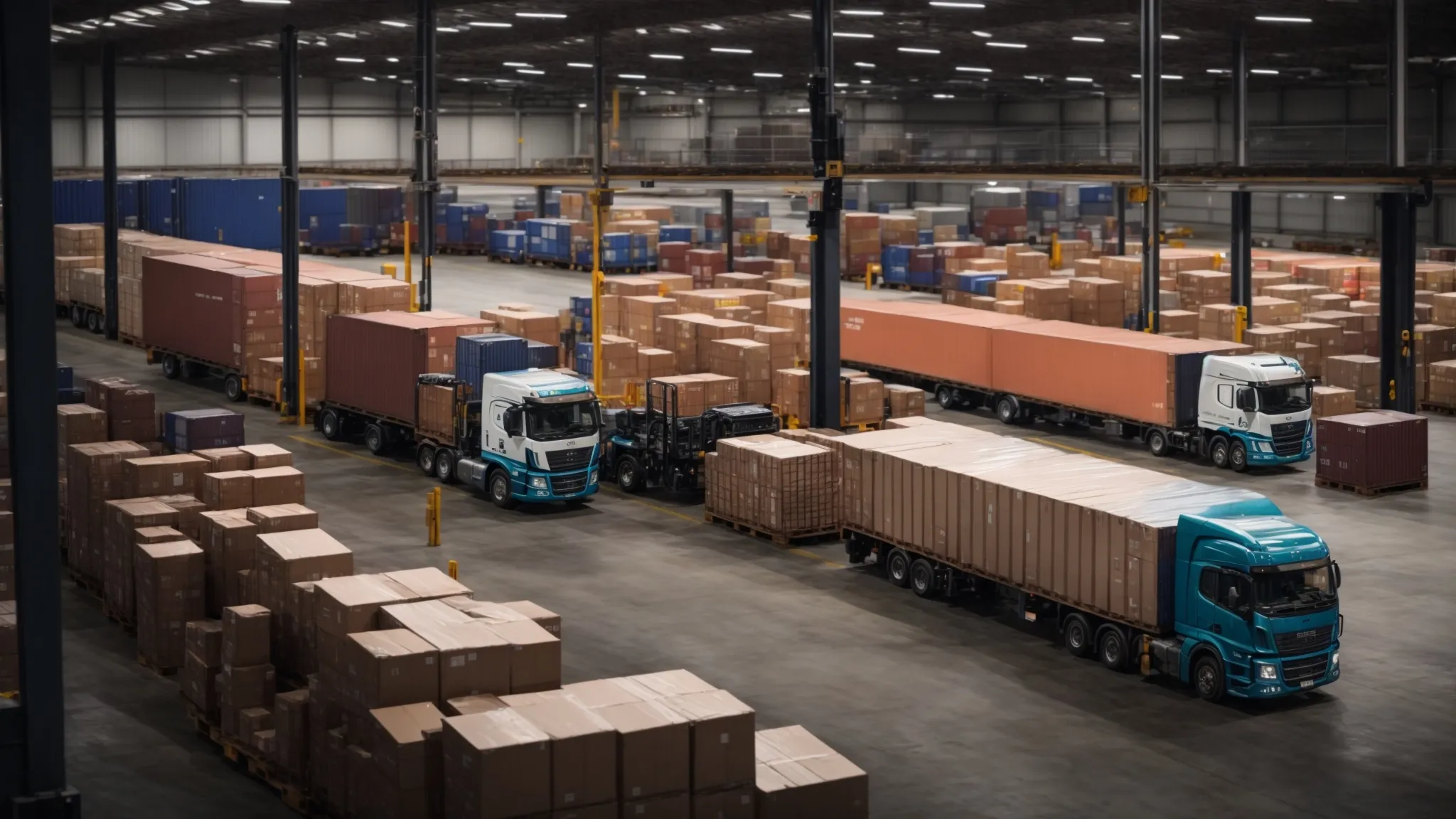
Transport freight services offer businesses diverse options for optimizing supply chains. This section compares full truckload and LTL shipping, guides the selection of ideal transportation modes, and explores multimodal transport solutions. Understanding LTL freight services, obtaining accurate LTL shipping quotes, and choosing the right LTL carrier are crucial for businesses seeking efficient and cost-effective logistics solutions.
Comparing Full Truckload and Less Than Truckload Shipping
Full truckload (FTL) and less than truckload (LTL) shipping offer distinct advantages for different shipping needs. FTL dedicates an entire truck to a single shipment, providing faster transit times and reduced handling. In contrast, LTL shipments share truck space with other freight, offering cost-effective solutions for smaller loads. Businesses can obtain LTL shipping quotes from various LTL freight carriers to compare rates and find the most economical option for their shipments.
When shipping LTL freight, companies benefit from flexible scheduling and the ability to ship smaller quantities more frequently. This approach can lead to reduced inventory costs and improved cash flow. However, cheap LTL shipping may come with longer transit times due to multiple stops and freight consolidation. Shippers must weigh these factors against their delivery requirements when choosing between FTL and LTL services for optimal supply chain efficiency.
Choosing the Ideal Transportation Mode for Your Needs
Selecting the ideal transportation mode requires careful consideration of various factors, including shipment size, urgency, and cost-effectiveness. For smaller shipments, UPS LTL and FedEx LTL quote services offer competitive rates and reliable delivery options. Businesses can compare LTL rate quotes from multiple carriers to find the most suitable option for their specific needs.
When dealing with temperature-sensitive goods, LTL reefer carriers provide specialized solutions to maintain product integrity during transit. For local shipments, businesses can search for “LTL carriers near me” to find providers with strong regional networks. By evaluating these options and understanding their unique advantages, companies can optimize their freight strategies and improve overall supply chain efficiency:
| Transportation Mode | Best For | Considerations |
|---|---|---|
| UPS LTL | Small to medium shipments | Wide network, competitive rates |
| FedEx LTL | Time-sensitive deliveries | Fast transit times, tracking capabilities |
| LTL Reefer Carriers | Temperature-controlled goods | Specialized equipment, higher costs |
| Local LTL Carriers | Regional shipments | Familiarity with local routes, personalized service |
Integrating Multimodal Transport Solutions
Integrating multimodal transport solutions allows businesses to optimize their supply chains by combining different modes of transportation. Less than truckload (LTL) carriers often play a crucial role in these strategies, offering flexible options for smaller shipments within a larger multimodal framework. By leveraging LTL shipping rates alongside other transportation methods, companies can create a more efficient and cost-effective logistics network.
Multimodal solutions enable businesses to adapt to changing market conditions and capitalize on the strengths of various transport modes. LTL transportation can be seamlessly integrated with rail, air, and ocean freight to create comprehensive shipping solutions. This approach allows companies to optimize LTL rates for short-haul deliveries while utilizing other modes for long-distance transport, resulting in a more agile and responsive supply chain:
| Transport Mode | Typical Use | Integration with LTL |
|---|---|---|
| Rail | Long-distance, bulk shipments | LTL for last-mile delivery |
| Ocean | International freight | LTL for inland distribution |
| Air | Urgent, high-value goods | LTL for regional distribution |
| LTL | Small to medium shipments | First/last-mile connectivity |
Leveraging LTL Freight Services for Cost Efficiency
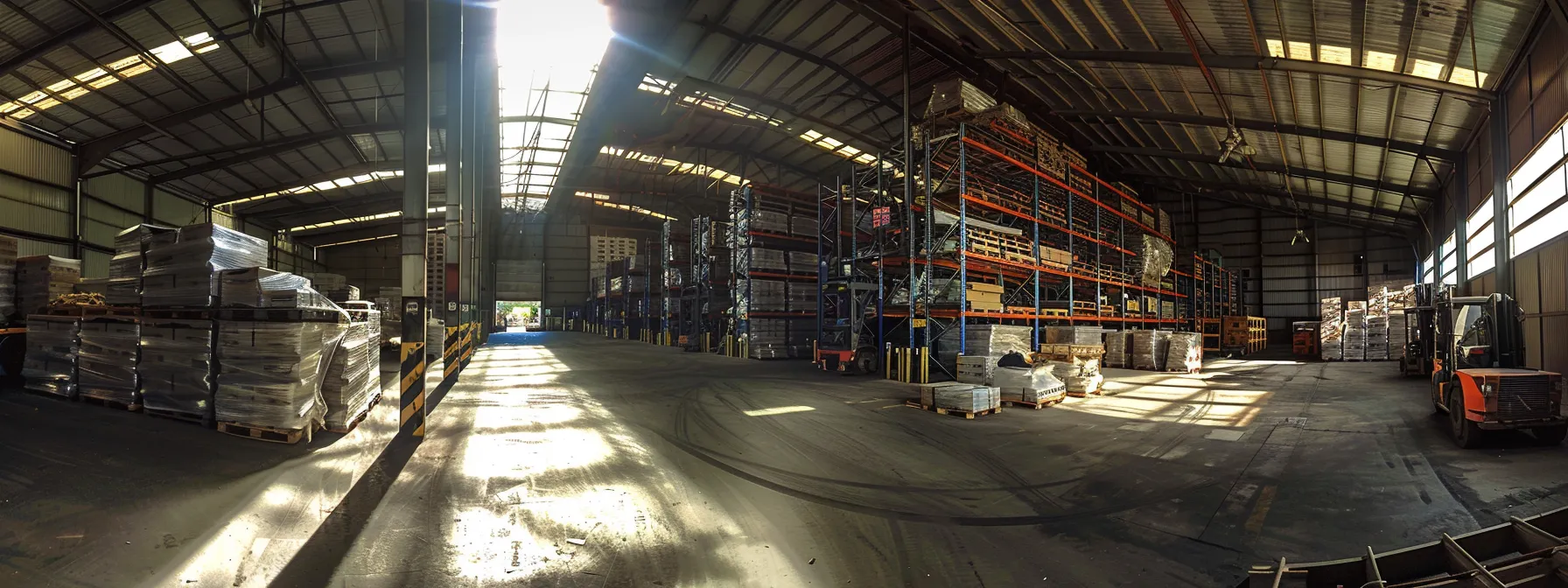
LTL freight services offer cost-effective solutions for small and medium-sized enterprises, optimizing supply chain efficiency. This section explores LTL operations, their advantages for businesses, and tips to enhance shipments. By understanding freight rates, packaging requirements, and leveraging ports and air cargo options, companies can maximize accessibility and reduce costs in their logistics operations.
How LTL Freight Services Operate
LTL freight services operate by consolidating multiple shipments from different customers onto a single trailer. This road transport method allows companies to share space and costs, making it an efficient option for businesses with smaller loads. LTL carriers optimize routes and schedules to ensure timely deliveries while maximizing trailer capacity.
The LTL process involves several key steps, from pickup to delivery:
- Shipment pickup from the customer’s location
- Transportation to a local terminal for sorting
- Consolidation with other shipments heading in the same direction
- Long-haul transport to the destination region
- Deconsolidation at a local terminal
- Final delivery to the consignee
Intermodal freight transport often integrates with LTL services, allowing for seamless transitions between different modes of transportation. This flexibility enables companies to leverage the most cost-effective and efficient shipping methods for their specific needs, whether through road, rail, or a combination of both.
Advantages of LTL for Small and Medium-Sized Enterprises
LTL freight services offer significant advantages for small and medium-sized enterprises (SMEs) in Canada, particularly in terms of cost-efficiency and sustainability. By consolidating shipments, LTL carriers optimize fuel usage and reduce carbon emissions, aligning with Canada’s environmental goals. This approach allows SMEs to manage their transportation costs effectively while contributing to reduced tariff-related expenses through efficient cross-border shipping.
The flexibility of LTL shipping enables SMEs to adapt quickly to market demands and maintain lean inventory management practices. By offering frequent, smaller shipments, businesses can reduce warehousing costs and improve cash flow. This agility is particularly beneficial for Canadian companies navigating complex supply chains and varying customer needs across the country’s vast geography:
| LTL Advantage | Benefit for SMEs |
|---|---|
| Cost-Effective Shipping | Reduced transportation expenses |
| Sustainability | Lower carbon footprint |
| Flexible Scheduling | Improved inventory management |
| Reduced Tariff Impact | Efficient cross-border logistics |
Tips to Optimize Your LTL Shipments
Optimizing LTL shipments requires a strategic approach to freight transportation services. Companies engaged in international trade can reduce risk by partnering with expert carriers who specialize in road freight. These professionals can guide shippers in consolidating freight effectively, ensuring optimal cube utilization and minimizing dimensional weight charges.
Accurate documentation and proper packaging play crucial roles in LTL optimization. Shippers should provide detailed descriptions of their goods and use appropriate packaging materials to protect items during transit. By following carrier-specific guidelines and leveraging technology for real-time tracking, businesses can enhance their LTL shipping efficiency and reduce the likelihood of delays or damages in the complex world of international logistics.
Selecting the Right Freight Service Provider
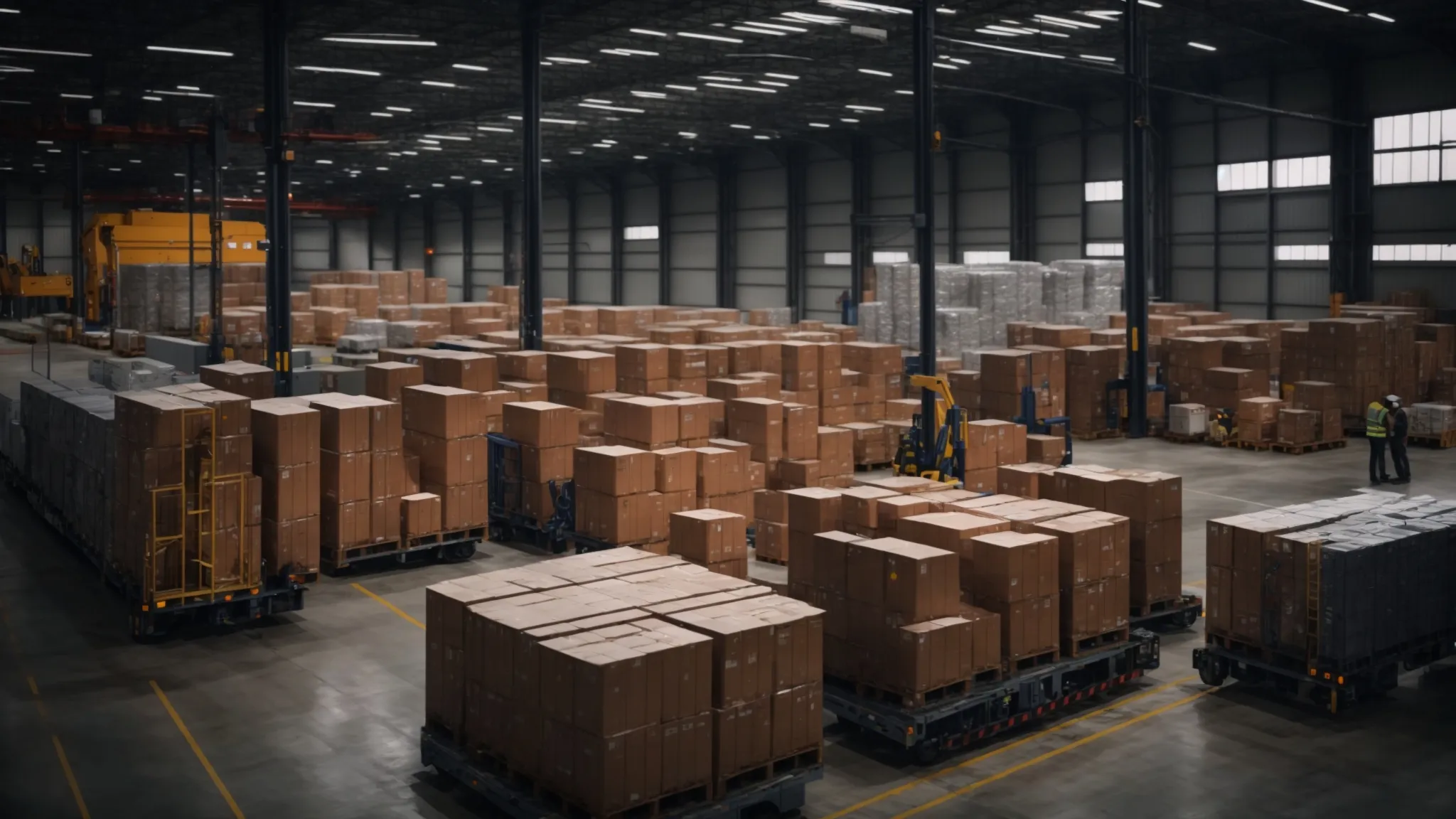
Selecting the right freight service provider is crucial for maximizing supply chain efficiency. This section examines key factors to evaluate when choosing a provider, including assessing service level agreements and contracts. It also explores the importance of utilizing technology and tracking systems in freight transportation. Understanding these aspects helps businesses optimize their freight shipping services and LTL services, ensuring cost-effective and reliable transport freight solutions.
Factors to Evaluate When Choosing a Provider
When selecting a freight service provider, businesses should evaluate the provider’s network coverage and expertise in specific trade lanes. Freight forwarding companies with a strong global presence can offer seamless international freight solutions, while those specializing in particular regions may provide more tailored services. Companies should also consider the provider’s experience with different modes of transportation and their ability to handle various types of cargo efficiently.
Financial stability and reputation are crucial factors in choosing among freight companies. Businesses can research freight moving companies near them and assess their track record in on-time deliveries, damage rates, and customer service. Additionally, evaluating a provider’s technological capabilities, such as real-time tracking and automated documentation, can significantly enhance supply chain visibility and efficiency in freight forwarding operations.
Assessing Service Level Agreements and Contracts
When assessing service level agreements (SLAs) and contracts for freight services, businesses must carefully evaluate key performance indicators related to maritime transport and supply chain management. Companies in the United States should ensure that SLAs address specific requirements for different zip codes, considering variations in transit times and delivery expectations across regions. Effective contracts should outline clear responsibilities for both parties, including provisions for energy-efficient transportation methods and sustainability practices.
Freight service providers should offer flexible contract terms that align with the dynamic nature of supply chain operations. SLAs should include measurable metrics for on-time performance, damage rates, and customer service responsiveness. Companies must also consider how contracts address potential disruptions and provide contingency plans for maintaining efficient logistics operations. Key elements to evaluate in freight service agreements include:
- Performance metrics and KPIs
- Pricing structures and volume commitments
- Service coverage areas and transit times
- Liability and insurance provisions
- Technology integration requirements
- Sustainability and energy efficiency commitments
Utilizing Technology and Tracking Systems
Advanced technology and tracking systems are essential components of modern freight services, enhancing inventory management and streamlining the receipt process. These systems provide real-time visibility into shipments, including those transported by train, enabling businesses to optimize their supply chain operations. For companies handling dangerous goods, sophisticated tracking technologies ensure compliance with safety regulations and facilitate efficient routing through various infrastructure points.
Freight service providers equipped with state-of-the-art tracking systems offer superior control over inventory movements, reducing the risk of loss or delays. These technologies enable precise monitoring of shipments across different modes of transport, including rail infrastructure, providing accurate estimated arrival times and allowing for proactive problem-solving. By leveraging these advanced systems, businesses can enhance their overall supply chain efficiency and maintain a competitive edge in the logistics industry.
Strategies to Maximize Supply Chain Efficiency
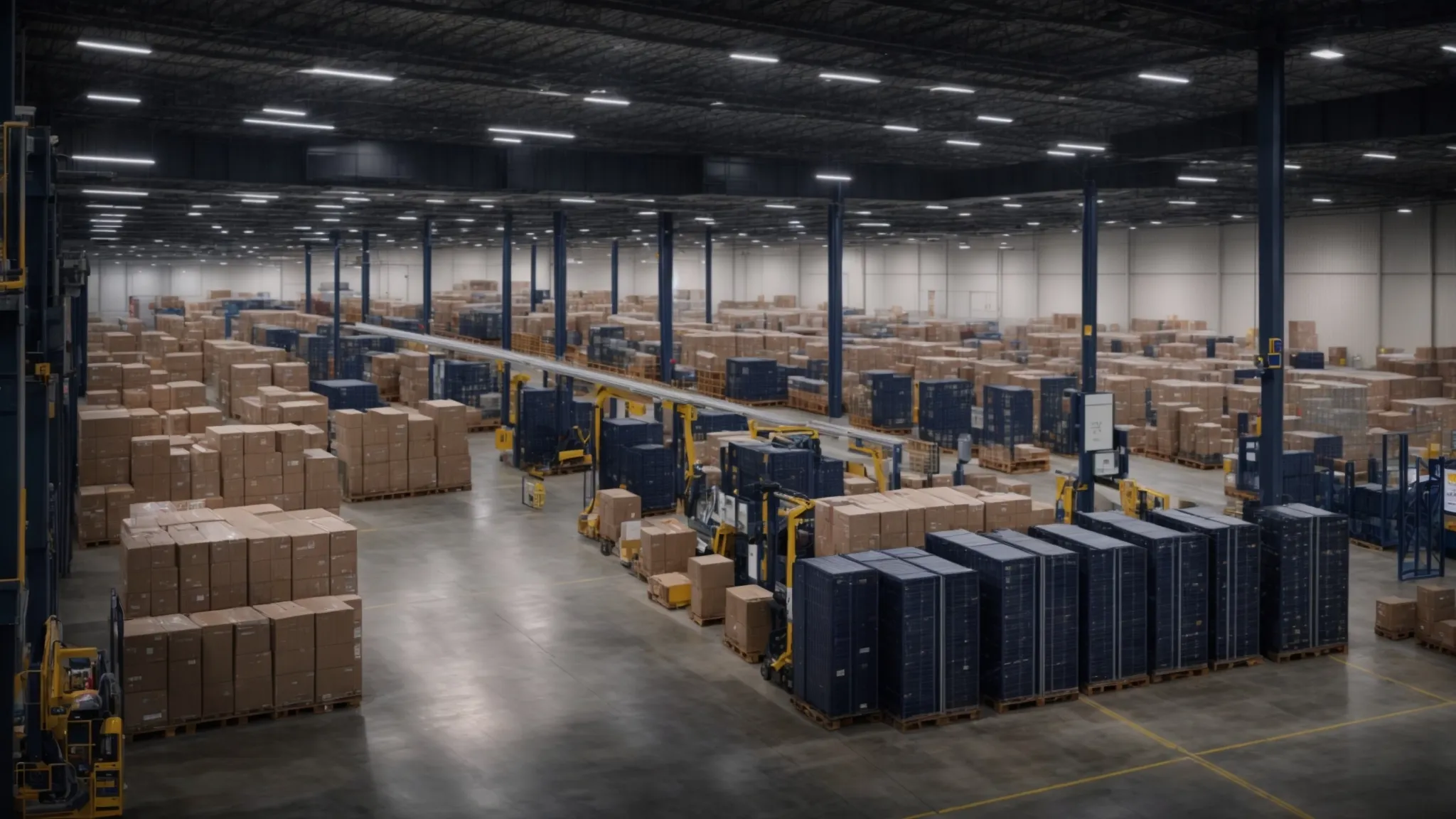
Maximizing supply chain efficiency requires strategic collaboration with freight partners, implementation of advanced logistics technologies, and continuous performance monitoring. This section explores how businesses can optimize their operations by leveraging Incoterms, enhancing customer service, and managing drayage effectively. It also examines the role of carbon reduction initiatives and pricing strategies in improving overall supply chain performance.
Collaborating Effectively With Freight Partners
Effective collaboration with freight partners is crucial for maximizing supply chain efficiency and reducing costs. By establishing clear communication channels and shared goals, businesses can leverage their partners’ expertise to optimize order fulfillment processes and reduce greenhouse gas emissions. This collaborative approach enables companies to identify opportunities for automation and streamline operations across various transportation modes, including waterways.
Successful partnerships with freight providers involve regular performance reviews and continuous improvement initiatives. By aligning key performance indicators and sharing data, both parties can work towards enhancing overall supply chain efficiency. This collaborative effort often leads to innovative solutions that address common challenges in logistics management:
- Joint planning for capacity utilization
- Coordinated sustainability efforts
- Shared investment in technology infrastructure
- Collaborative risk management strategies
- Integrated performance monitoring systems
Implementing Advanced Logistics Technologies
Advanced logistics technologies play a crucial role in enhancing supply chain efficiency. The National Motor Freight Traffic Association advocates for the adoption of innovative solutions that improve visibility and streamline delivery processes. These technologies enable companies to optimize truckload utilization and enhance courier operations, resulting in faster, more reliable shipments.
Implementing state-of-the-art tracking systems and predictive analytics tools allows businesses to gain real-time insights into their supply chain operations. By leveraging these technologies, companies can proactively address potential delays, optimize routes, and improve overall delivery performance. This level of visibility empowers logistics managers to make data-driven decisions, ultimately leading to more efficient and cost-effective freight management.
Monitoring Performance for Continuous Improvement
Monitoring performance for continuous improvement is essential for companies seeking to maximize their supply chain efficiency. By establishing key performance indicators (KPIs) that align with global standards, businesses can gain a competitive advantage in the logistics industry. Regular performance reviews enable companies to identify areas for improvement and make data-driven decisions to optimize their freight operations.
Effective monitoring systems allow businesses to track carrier performance, ensuring timely deliveries and customer satisfaction. By leveraging advanced analytics tools, companies can identify trends, predict potential issues, and proactively address challenges in their supply chain. This approach not only enhances operational efficiency but also strengthens relationships with customers and carriers, fostering long-term partnerships and driving continuous improvement in freight services.
Frequently Asked Questions
How can professional freight services improve supply chain efficiency?
Professional freight services enhance supply chain efficiency by optimizing transportation routes, consolidating shipments, and leveraging advanced tracking technologies. They offer expertise in customs clearance, warehousing, and inventory management, reducing delays and costs while improving overall logistics performance.
What are the benefits of using LTL freight services for businesses?
LTL freight services offer businesses cost-effective shipping for smaller loads, flexibility in scheduling, reduced handling, and improved efficiency. They provide access to a wider delivery network, enable better inventory management, and allow companies to ship diverse products without the need for full truckloads.
What factors should be considered when selecting a freight service provider?
When selecting a freight service provider, consider reliability, cost-effectiveness, transit times, tracking capabilities, insurance coverage, service range, and customer support. Evaluate their experience, reputation, and capacity to handle your specific cargo needs. Additionally, assess their technology integration and regulatory compliance to ensure efficient and compliant shipments.
How do transport freight services contribute to business success?
Transport freight services play a crucial role in business success by ensuring efficient supply chain management. They enable timely delivery of goods, reduce inventory costs, expand market reach, and enhance customer satisfaction. Reliable freight services also help businesses maintain competitive advantage and adapt to market demands.
What strategies can companies implement to maximize their supply chain efficiency?
Companies can maximize supply chain efficiency by implementing real-time tracking systems, optimizing inventory management, fostering strong supplier relationships, leveraging data analytics for demand forecasting, and integrating automation technologies. Streamlining processes and enhancing communication across all stages of the supply chain are also crucial strategies.
Conclusion
Professional freight services play a pivotal role in optimizing supply chains, offering businesses efficient transportation solutions and enhancing overall operational performance. By leveraging advanced technologies, streamlining processes, and collaborating effectively with freight partners, companies can significantly reduce costs, improve delivery times, and increase customer satisfaction. Choosing the right freight service provider and implementing strategic logistics solutions are crucial steps in maximizing supply chain efficiency and gaining a competitive edge in today’s global marketplace. Ultimately, investing in professional freight services enables businesses to adapt to changing market demands, mitigate risks, and achieve sustainable growth in an increasingly complex logistics landscape.
